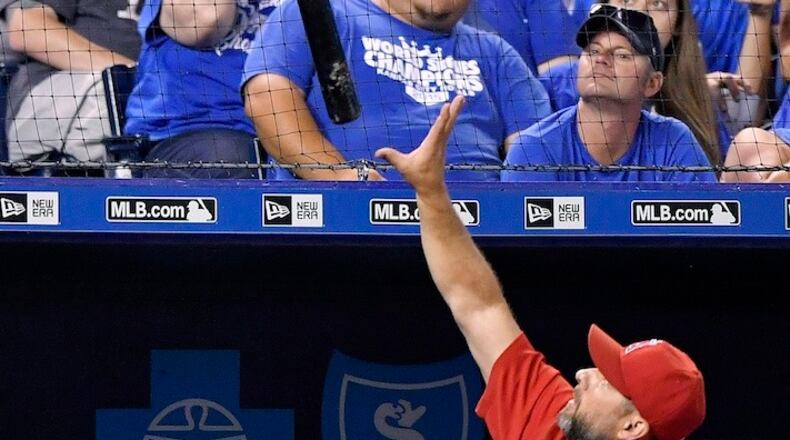Obviously there have been no changes implemented this year, though everyone expects a pitch clock and a limit to mound visits, at the very least, in 2018.
We have heard nothing from the committee since the announcement, and it remains unknown as to whether MLB will release any information to the public when or if changes are made. It would be nice to have an analysis on the issues based on their findings, like former U.S. Sen. George Mitchell's 409-page report on steroids in baseball in 2007, but that seems like wishful thinking.
"A lot of the conclusions that we have reached — and it's not just Manfred, it's people on all sides, people from all different directions, from the media — it's not just based on any statistical finding or any specific research," Indians pitcher Andrew Miller said. "They're kind of hunches. And for them to make such drastic changes to the game ... we probably should have some firm evidence, in my opinion."
Miller's opinion matters. He's a well-respected representative in the players association and on a committee with Curtis Granderson and a few others. But no current player is on MLB's competition committee. MLB ultimately will take its recommendations to the union, and the players will have their say through it, though baseball still may make unilateral changes in '18 on some issues.
The debate over extended netting at ballparks isn't much of a debate now that a young girl was seriously injured last week by a foul ball at Yankee Stadium estimated at 105 mph off the bat of Todd Frazier. The Padres, Reds, Rockies and Mariners were the first to agree to expand the netting at their own ballparks, and surely more teams will follow. The real question is why MLB didn't mandate this as it only "encouraged" team to do so in 2015 after similar incidents.
As for pace of game issues, Miller had a wild idea that he agreed would never pass muster.
"There are times in the game when the drama is almost good," he said. "You want that pitcher to think 'How do I work through this?' But I think catchers' visits have gotten little stale.
"They should turn off the camera on the catcher. We have all these replay cameras. If pitchers weren't so worried about their signs being stolen, the game would speed up. Has anyone talked about that?"
My pet peeve is relievers warming up for several minutes in the bullpen and then having to warm up again for a minute when they actually come into a game. Why not limit them to just a few warm-up pitches once they get in? With so many relievers being used these days, all the extra warm-up pitches add up.
Miller, a reliever, disagreed with my time-saving idea.
"The Cubs bullpen is under the bleachers," he said. "If you had to come in and execute a pitch after throwing (in an inside space) it would be a mess. Sometimes you need a chance to see your elements. You come into the game, and maybe the guy on the opposing team might have dug some holes where you don't want to land. You need a chance to feel comfortable.
"I see where you're coming from — 'That guy should be ready.' But I think that's an unfortunate thing. I'm a reliever and so that would directly affect me, I guess.
"It's a sore subject for me. It's easy for me to say 'Oh, a hitter should just get in the box.' That's part of the problem, getting everyone to agree on a change. Every pitcher would probably say 'Get rid of walk-up songs' or 'get rid of this.' "
Getting rid of walk-up music is a change I would wholeheartedly support.
Maybe the union should just commission a "Miller Report" on the state of the game. Whether he's right or wrong, at least Miller always has a thoughtful opinion, and isn't afraid to share it.
About the Author
